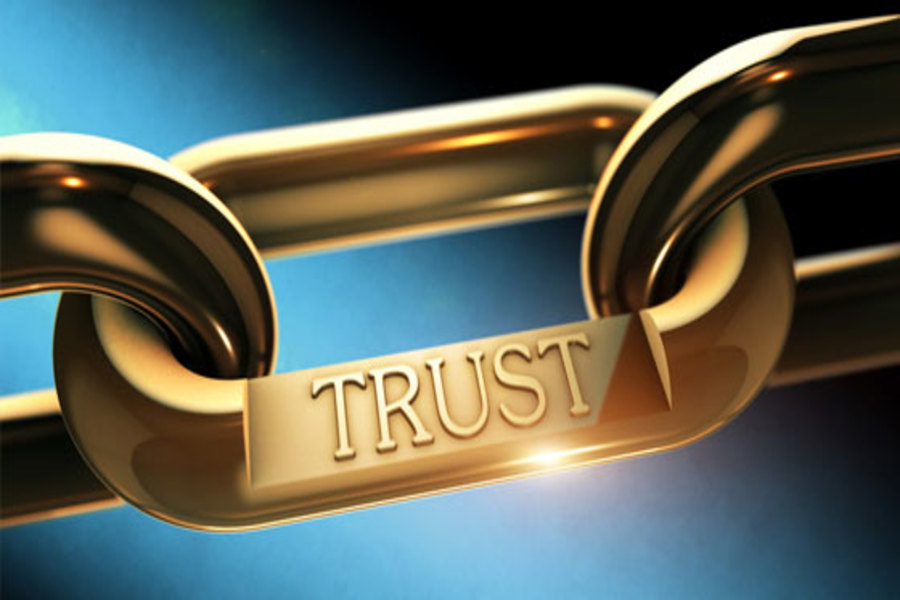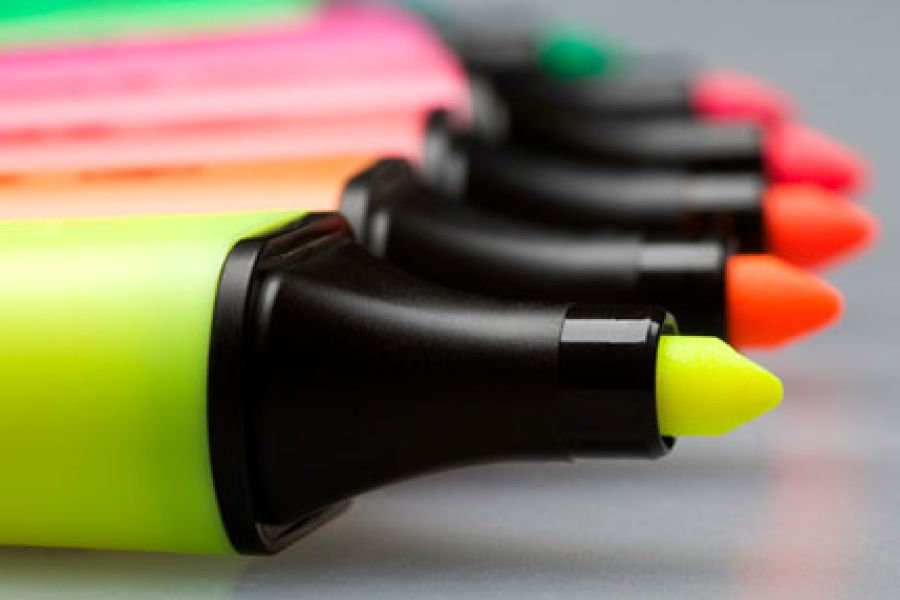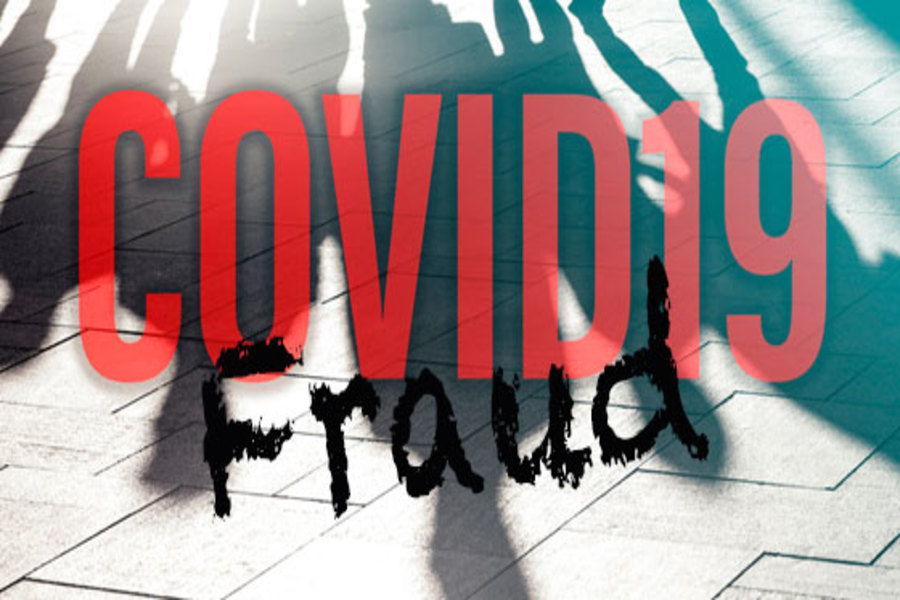Every time your business interacts with customers is an opportunity to build trust. And it’s an opportunity you can’t afford to neglect. Look at customer data. When customers hand over personal and financial data to your company, they expect you to do everything in your power to protect it from hackers — as well as non-criminal third parties. If you don’t? Just look at some of the companies affected by major data breaches. Protect data and build trust with customers. Provide fraud notices Unless you run a cash-only business, you collect financial data from you customers every time you process transactions. If you offer credit accounts to business customers, you probably collect even more information. You’re obliged to ensure this data doesn’t fall into the hands of...

Businesses and fraud experts often face a long, arduous process when investigating any occupational fraud incident. When the fraud suspect is an executive . . . a member of upper management . . . it’s exponentially harder. In theory, investigating executives shouldn’t differ from the process of investigating rank-and-file employees. In reality, the authority and influence of an executive can slow — even shut down — a fraud investigation. You need a plan to prevent interference and facilitate the collection of evidence that can be used in court, if necessary. Human element The first step is to brief the executive’s chain of command. As soon as allegations surface, work with your company’s human resources and legal departments to make the suspect’s superiors aware of the situation. If you...
Financial statement manipulation is the costliest type of occupational fraud. The latest Report to the Nations published by the Association of Certified Fraud Examiners found that the median loss from financial statement fraud was $800,000, compared to median losses of $114,000 for asset misappropriation and $250,000 for corruption. With any type of fraud, the sooner it’s detected, the more likely losses can be mitigated. The Beneish model helps detect earnings manipulation. As such, this is one tool management and fraud experts might use to assess the likelihood of earnings manipulation. M score The Beneish model measures the probability that a company’s revenue has been inflated and its expenses have been understated. The model generally computes an “M score” from comparisons between consecutive financial reporting periods of various...
When Dan received a large shipment of highlighter markers, he was confused. He didn’t remember ordering them — and he was the company’s sole office supplies buyer. Yet when he received an invoice for the markers a week later, he approved it for payment. After all, employees were already using the highlighters. Dan fell for a typical office supply scam — and his company paid for the mistake. Here’s how to protect your business from this type of fraud. Common features Office supply scams typically begin as telemarketing fraud, with someone calling your business to obtain your street address and the name of an employee. Callers may ask for the person in charge, claim to need information to complete an order or pretend to verify an office machine’s...
Seniors face a double threat with the coronavirus (COVID-19) pandemic. The elderly are considered the most vulnerable population for medical complications associated with the virus. They’re also prime targets for COVID-19 scams. If you’re a senior — or have elderly relatives and friends — read and share the following information. Everyone a potential victim There’s nothing new about fraud perpetrators attacking seniors, who may be less savvy about phishing emails and online scams and more trusting of strangers. As a study conducted by the FINRA Investor Education Foundation and several other groups found, a major risk factor for losing money to scams is social or physical isolation, which is more common among the elderly. Of course, during the current crisis, everyone’s a potential fraud victim. As with all consumers,...
Scam artists know how anxious business owners are during the current coronavirus (COVID-19) crisis. They know that as you struggle to meet customer demands, pay employees and stay solvent, you’re more likely to drop your guard and fall for a fraud scheme. The last thing your business needs right now is to suffer additional financial losses. So keep an eye out for the latest ways that COVID-19 poses fraud threats to businesses: Fake suppliers Whether you’re a manufacturer seeking raw materials or a grocer desperate to keep shelves stocked, you may have trouble getting your usual supplies. If a regular supplier is temporarily — or permanently — shut down, be careful about doing business with unknown vendors. Many authentic-looking websites are, in fact, fronts for criminal operations,...
As governments around the globe mobilize to defend their populations from the novel coronavirus, criminals are also mobilizing — using COVID-19 to fleece Americans. These opportunists have already found ways to use the fear and chaos associated with the pandemic to enrich themselves. But you can protect yourself and your business. Ripe opportunity Phishing emails that promise valuable information about the virus have been circulating for weeks. Fake COVID-19 websites loaded with malware have also popped up everywhere. And as many Americans start working from home, often on vulnerable home networks and devices that lack the latest security updates, hacking incidents are becoming more common. The federal government’s plan to send checks to Americans to help boost the economy will almost certainly bring scammers out in force. The...
It’s bad enough that the living have to worry about identity theft. But criminals also exploit the deceased with “ghosting” schemes. These thieves are stealing the identities of the dead to open credit card and service accounts and obtain loans and tax refunds. Here’s how to prevent fraudsters from taking advantage of your family. Stealing the identities of the dead: window of opportunity Months may elapse between the time a person dies and when financial institutions, credit bureaus and government entities update their records. This provides fraudsters with a big window of opportunity. Making identity theft even easier is the fact that victims aren’t around to monitor their finances and grieving families are often occupied with other matters. It can take as long as 60 days for a...
“All complaints will be swiftly and thoroughly investigated.” No doubt this sentence, or something similar, appears in your company’s employee handbook. Unfortunately, there will likely be a time when you’ll have to put those words into action. Whether an employee alleges discrimination or harassment, or reports a coworker for theft or fraud, you’ll need to handle investigating employee complaints appropriately. Keep these five best practices in mind to avoid unnecessary legal complications: (1) Maintain confidentiality Take every precaution to keep details of the allegation private — especially the identities of the accused and the accuser. Remind managers that they need to have all conversations behind closed doors, store all meeting notes securely and speak only to those people who are necessary to the investigation. Assure workers involved in...
You may think your business has enough insurance already. What's a common business insurance coverage oversight? If you business is vulnerable to employee theft and fraud — and most businesses are — you may want to consider adding more coverage. Some insurance companies offer policies to protect against loss of money and property due to criminal acts by employees. Here’s how to decide whether your business needs one. Specialty coverage Employee dishonesty insurance can cover not only theft of money, property and securities, but also willful damage to property. If, for example, an employee smashes a computer or kicks a hole in a wall, it’s likely covered. And this type of policy covers losses from all employees. However, coverage generally is based on occurrences. So if more...











